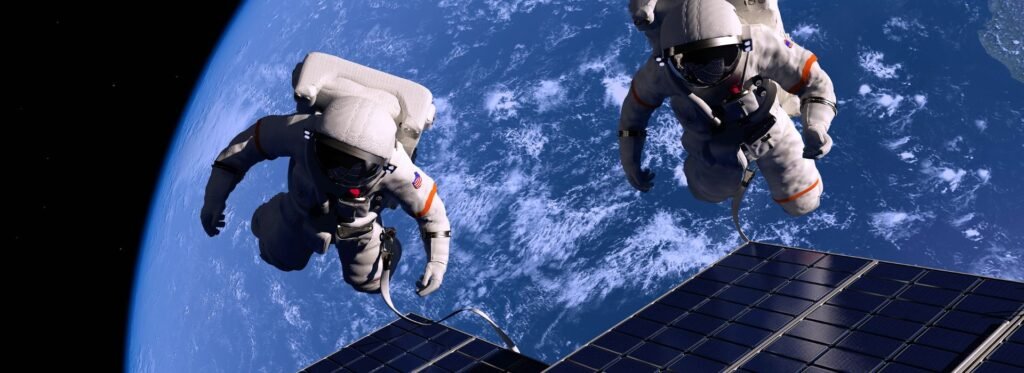
- Leave a review
- Bookmark
- Share
- Report
- prev
- next
Description
National Astronaut Day is celebrated annually on May 5 to commemorate a pivotal moment in space history. On this day in 1961, Alan B. Shepard Jr. became the first American to travel into space. His 15-minute suborbital flight aboard the Mercury capsule Freedom 7 marked a significant milestone in human space exploration. This day isn't just about remembering past achievements; it's about inspiring future generations to look up and dream big. It's a reminder that the sky isn't the limit—it's just the beginning.
History
On April 12, 1961, Soviet cosmonaut Yuri Gagarin made history by becoming the first human to go to space aboard Vostok 1. Just a few weeks later, the U.S. responded with a historic achievement of its own. On May 5, 1961, Alan Shepard became the first American in space, flying a suborbital mission aboard the Freedom 7 spacecraft. This is why we now celebrate National Astronaut Day – May 5 every year!
NASA quickly ramped up its space program, leading to the iconic Apollo missions. In 1969, Neil Armstrong became the First Person to Walk on the Moon, declaring the famous words: “That’s one small step for man, one giant leap for mankind.”
As space programs expanded, so did their missions. Astronauts began conducting scientific experiments, building satellites, and eventually living aboard orbiting platforms like Skylab, Mir, and today’s International Space Station (ISS). We’ve even witnessed some fun moments, like Golf on the Moon, thanks to Alan Shepard’s makeshift lunar swing.
From tragic losses like the Challenger and Columbia disasters to inspirational breakthroughs like the First All-Female Spacewalk, human spaceflight has seen both triumph and sacrifice. Today, we even celebrate record-setters like The Oldest Person in Space, John Glenn, who flew at age 77, and Peggy Whitson, who holds the record for the most time spent in space by a woman.
And spaceflight isn't just for NASA anymore. Thanks to private companies like SpaceX and Blue Origin, and personalities like the Everyday Astronaut, the next generation of explorers is already preparing to go farther than ever before—possibly to Mars.
How To Celebrate
1. Watch a Space Documentary
Dive into the wonders of the universe by watching documentaries like Apollo 11, The Last Man on the Moon, or For All Mankind. These films offer a glimpse into the challenges and triumphs of space missions.
2. Read Biographies of Astronauts
Get inspired by the lives of astronauts through books like Sally Ride: America's First Woman in Space by Lynn Sherr or Carrying the Fire by Michael Collins. These memoirs provide personal insights into the lives of those who ventured into the unknown.
3. Visit a Planetarium or Science Center
If you're in Doha, consider visiting the Al Thuraya Astronomy Center. It's a fantastic place to learn about the stars, planets, and the history of space exploration.
4. Engage in Space-Themed Activities
Organize a space-themed trivia night, create DIY rocket models, or stargaze with friends and family. It's a fun way to learn and bond over shared interests.
5. Support Space Education
Donate to organizations that promote STEM education or sponsor a student interested in pursuing a career in space science. Your contribution can help inspire the next generation of astronauts.
Amazing Facts
-
First Person to Walk on the Moon: Neil Armstrong made history on July 20, 1969, during the Apollo 11 mission. His famous words, "That's one small step for [a] man, one giant leap for mankind," resonated around the world .
-
Golf on the Moon: Astronaut Alan Shepard hit two golf balls on the lunar surface during the Apollo 14 mission in 1971. Talk about a hole-in-one!
-
The Oldest Person in Space: John Glenn returned to space at the age of 77 aboard the Space Shuttle Discovery in 1998, proving that age is just a number when it comes to exploring the cosmos.
-
First All-Female Spacewalk: On October 18, 2019, astronauts Christina Koch and Jessica Meir conducted the first all-female spacewalk outside the International Space Station .
-
The Longest Spaceflight by a Woman: Peggy Whitson holds the record for the longest cumulative time spent in space by a woman, with 665 days, 22 hours, and 22 minutes .
Why We Love
1. Watch a Space Documentary
Learn about real missions and heroic astronauts. Try Apollo 11, The Last Man on the Moon, or The Mars Generation.
2. Read Biographies of Astronauts
Books like Carrying the Fire by Michael Collins or Endurance by Scott Kelly give you a personal look into space life.
3. Create DIY Space Crafts
Make paper rockets, astronaut helmets, or build a solar system model with your kids, friends, or students.
4. Host a Space-Themed Movie Night
Watch inspiring movies like Interstellar, Hidden Figures, or The Right Stuff under the stars (or your living room ceiling!).
5. Visit a Planetarium or Space Museum
Many science centers offer special events or exhibits celebrating astronauts and space travel on this day.
Faq's
It refers to people who make space accessible to everyone—like YouTubers, educators, and fans who love to share space knowledge.
It refers to people who make space accessible to everyone—like YouTubers, educators, and fans who love to share space knowledge.
That would be Neil Armstrong, who stepped onto the Moon during the Apollo 11 mission on July 20, 1969.
Because on May 5, 1961, astronaut Alan Shepard launched into space aboard Freedom 7, making American space history.
Event starts in
-
82
Days -
01
Hours -
08
Minutes

Add a review